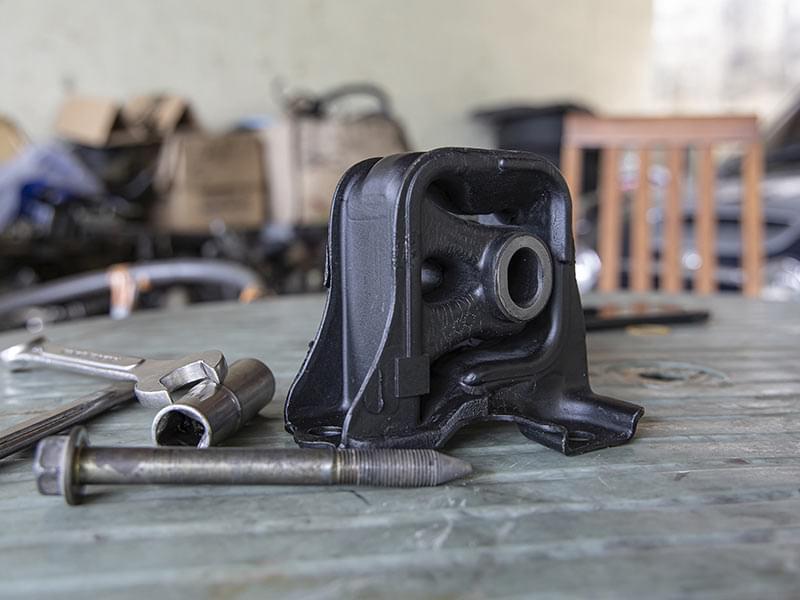Learn about torsion testing in this Q&A with Smithers product testing supervisor
Kenny McGinnis.
What is torsion testing?
Torsion testing replicates a twisting motion in a laboratory setting in order to predict how a component or part will respond to torsional shear stress in the field. There are two broad categories for torsional testing:
- torsional properties of a material or product (such as ultimate shear strength and modulus of elasticity, etc).
- operational testing of actual products, simulating actual conditions the product would experience in the field.
The axial torsion tester in our lab lets us control a lot of different variables, too, depending on what you want to measure. We can customize:
- Speed of rotation
- Number of cycles
- Range of rotation, up to ±130°
- Torque
We are also able to combine torsional loading with axial loading and customize the test parameters based on what you want to measure, such as how much weight or load the component can handle or its range of motion. By locking in a few controlled variables, we can hone in on the exact data you need to determine how your product will perform in the field, so you can make important product development decisions.
What industries can benefit from this type of testing? What sort of products could be tested on a torsional testing machine?
The
automotive,
aerospace,
industrial, hydraulic,
consumer, and
medical industries can all benefit from torsion testing.
There is a huge range of individual products that can benefit from torsion testing. Just to name a few:
- Any cap that doesn’t need a complete rotation, such as a radiator cap
- Bushings and bearings with a rod through them
- Steering columns
- Motor couplings
- Ball joints
- Tie rods
- Bone screws and joints
What is the benefit of investing in torsion testing?
Investing in any type of laboratory testing gives you an expedited and controlled look at how your product will perform in the field and help you predict possible issues in the development and validation stage. Just like
pressure,
vibration, or
temperature, torsion is a variable we can test in the lab to determine whether it could potentially contribute to product failure. Additionally, axial testing alone usually isn’t sufficient for a product that experiences any type of rotational stress. Torsion testing can help you determine if the product withstand rotational stresses.
Are there other types of testing that go hand-in-hand with torsion testing?
Some combination of pressure, vibration, and temperature testing is required when testing most products. That being said, my fellow Smithers engineers and I can design a custom testing program that combines torsion testing with a wide range of other testing methods to get you the data you need.


